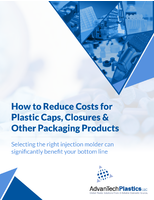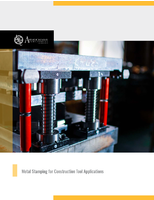NSF International certifies first European brass manufacturers.
Press Release Summary:
NSF International announces that Italian-based K.M.E Brass S.R.L., S.A. Eredi Gnutti Metalli S.P.A., and Trafilerie Carlo Gnutti S.P.A. are the first European brass manufacturers certified to NSF's low lead content requirements for plumbing products. NSF/ANSI Standard 61, Annex G was developed to help protect public from exposure to lead by mandating maximum weighted average lead content of less than or equal to 0.25%in products that come into contact with drinking water.
Original Press Release:
NSF International Certifies First European Brass Manufacturers to New Low Lead Requirements
Certification of plumbing and drinking water products help protect the public from lead exposure
ANN ARBOR, Mich. - NSF International, a global public health and safety organization, announces the following three Italian-based companies, K.M.E Brass S.R.L., S.A. Eredi Gnutti Metalli S.P.A., and Trafilerie Carlo Gnutti S.P.A., the first European brass manufacturers certified to NSF's low lead content requirements for plumbing products (NSF/ANSI Standard 61, Annex G). The standard outlines the testing requirements for any product that comes into contact with drinking water to ensure the product does not contribute excessive levels of contaminants, including lead, to drinking water.
NSF/ANSI Standard 61, Annex G - Weighted Average Lead Content Evaluation Procedure to a 0.25 Percent Lead Requirement - was developed to help protect the public from exposure to lead by mandating a maximum weighted average lead content of less than or equal to 0.25 percent in products that come into contact with drinking water. The requirements for Annex G also include compliance with NSF/ANSI Standard 61, the American National Standard for drinking water products.
These lead requirements apply to manufacturers of faucets, valves, pipes, water fittings, and any product that comes in contact with drinking water. Products made from an NSF-certified brass alloy require separate testing and certification to NSF 61, Annex G to ensure contamination does not occur during processing.
"NSF International developed NSF/ANSI 61, Annex G through a consensus-based process that included input from industry, regulators and other experts. Annex G provides a means of evaluating and certifying low lead products to ensure they also comply with the National Standard," said Bob Ferguson, Vice President of NSF International's Water Programs. "By achieving Annex G certification, these manufacturers can provide assurance to regulators, consumers, and plumbing product manufacturers that these brass products have been tested and comply with the low lead requirements in various U.S. states."
The three Italian companies that have achieved this certification, K.M.E Brass S.R.L., S.A. Eredi Gnutti Metalli S.P.A., and Trafilerie Carlo Gnutti S.P.A., are entitled to bear the NSF Annex G Certification Mark. All three companies are also listed on the NSF website to demonstrate compliance with the new requirements.
For more information on NSF/ANSI Standard 61/Annex G requirements or NSF testing and certification services, visit www.nsf.org or contact Pete Greiner at (+1) 734.769.5517 or greinerp@nsf.org. A copy of Annex G as adopted in NSF/ANSI 61 - 2008 is available here.
Additional Background on the Development of Annex G
The annex was developed by NSF's Lead Task Group with guidance from key regulators, proponents of the California lead bill, industry representatives and the NSF Standard 61 Joint Committee. The NSF Joint Committee is comprised of equal representation from public health, user communities and industry to ensure an open, transparent and consensus process.
About NSF International: NSF International, an independent, not-for-profit organization, certifies products and writes standards for food, water and consumer goods to minimize adverse health effects and protect the environment (www.nsf.org). Founded in 1944, NSF is committed to protecting human health and safety worldwide and operates in more than 120 countries. NSF is a World Health Organization Collaborating Centre for Food and Water Safety and Indoor Environment.
NSF International developed NSF/ANSI Standard 61, Annex G - Weighted Average Lead Content Evaluation Procedure to a 0.25 Percent Lead Requirement - based on state legislation to help protect the public from exposure to lead by mandating a maximum weighted average lead content of less than or equal to 0.25 percent in products which come into contact with drinking water.
Additional services include Education and Training, safety audits for the food and water industries, dietary and nutritional supplement certification, management systems registrations (e.g. ISO 14001) delivered through NSF International Strategic Registrations and organic certification provided by QAI (Quality Assurance International).




